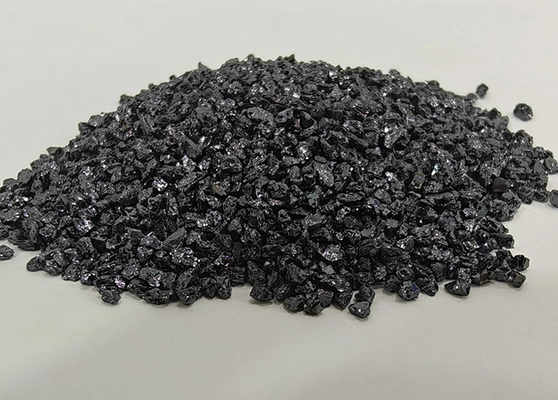Quick Answer
Corn cob abrasives are natural abrasives made by drying, crushing, and screening the cores of corn cobs. They are lightweight, flexible, and ideal for cleaning, polishing, and finishing surfaces such as metal, wood, stone, and glass. Being natural, they are environmentally friendly and provide gentle abrasion that minimizes surface damage.
What Are Corn Cob Abrasives?
Corn cob abrasives are natural abrasives derived from the cores of dried corn cobs. After harvesting, the cobs are dried, crushed, and screened to produce abrasives with different particle sizes. They provide gentle abrasion and are suitable for cleaning delicate surfaces, removing oxidation from metals, and finishing wood, stone, or glass surfaces.
Because they are naturally derived, corn cob abrasives are biodegradable and environmentally friendly. They are widely used in industries where sustainable and safe abrasive materials are required.
Properties
- Lightweight and Flexible: Protects surfaces from damage while providing effective cleaning.
- Varied Particle Sizes: Can be produced in coarse, medium, and fine grades to suit different applications.
- Oil and Moisture Absorption: Works well with wet blasting and abrasive pastes.
- Gentle Abrasion: Ideal for delicate surface cleaning, oxidation removal, and finishing.
- Environmentally Friendly: Biodegradable and safe for disposal.
Applications
Corn cob abrasives are used across various industries due to their gentle yet effective abrasive properties.
- Metal Surface Cleaning: Removes oxidation, rust, and contaminants from aluminum, copper, brass, and other metals.
- Wood Finishing: Furniture, musical instruments, and decorative wood surfaces can be polished without damaging the grain.
- Stone Polishing: Granite, marble, and other stone surfaces can be cleaned and given a smooth finish.
- Glass and Ceramics: Suitable for surface cleaning, polishing, and preparing glass or ceramic parts.
- Wet Blasting Applications: Works with polishing pastes or liquids to provide uniform finishing.
Corn cob abrasives have also found applications in removing oxidation from 3D-printed metal parts, as well as fine finishing in aerospace and automotive components.
Advantages
- Environmentally friendly and biodegradable
- Gentle on surfaces, reducing the risk of damage
- Lightweight with low dust generation
- Compatible with wet blasting and abrasive pastes
- Suitable for a wide range of materials, including wood, metal, stone, glass, and ceramics
Disadvantages
- Low hardness, unsuitable for heavy material removal on cast iron or hard metals
- Particles wear out faster due to softness
- Requires careful storage to prevent moisture or mold
- Not ideal for ultra-precision or extremely hard materials
Manufacturing Process
The manufacturing of corn cob abrasives involves the following steps:
- Raw Material Selection: Corn cobs are harvested and impurities removed.
- Drying: Moisture is removed to prepare for crushing.
- Crushing: Corn cobs are ground into coarse, medium, or fine particles depending on application.
- Screening: Particles are classified to achieve uniform size distribution.
- Packing and Shipping: Dried and sieved abrasives are packaged in moisture-proof containers.
This process ensures consistent abrasive performance and quality across different batches.
FAQ
Q1. What materials are suitable for corn cob abrasives?
A. They can be used on wood, metals (aluminum, copper, brass), stone, glass, and ceramic surfaces.
Q2. Can corn cob abrasives be used on hard metals?
A. Due to low hardness, they are not suitable for cast iron or high-hardness metals. They are recommended for finishing and light surface cleaning.
Q3. How should I choose the particle size?
A. Coarse particles are suitable for oxidation removal and surface cleaning, while medium and fine particles are used for finishing.
Q4. Are corn cob abrasives environmentally safe?
A. Yes, they are biodegradable and safe for disposal, making them an environmentally friendly choice.
